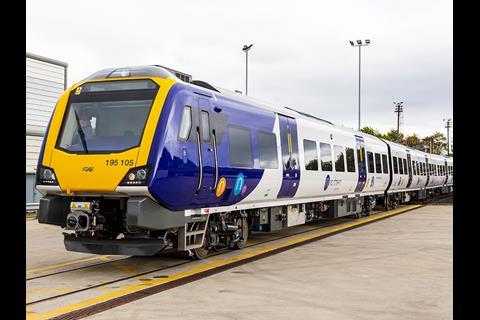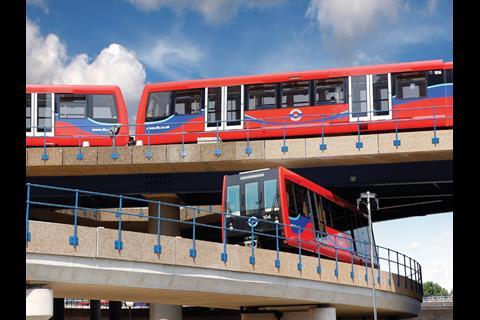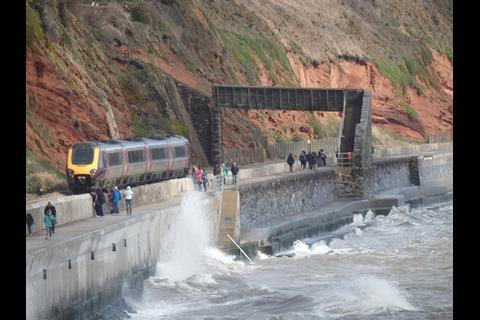UK: Northern Powerhouse Rail, East West Rail and the Docklands Light Railway are among the beneficiaries of funding allocations in the budget presented to parliament by Chancellor of the Exchequer Philip Hammond on October 29.
The budget allocates a further £37m for development of the Northern Powerhouse Rail concept for upgraded rail services in northern England, building on £300m already committed to ensure HS2 infrastructure can accommodate Northern Powerhouse Rail and Midlands Engine services.
‘This money covers what we had asked government for to further develop Northern Powerhouse Rail during the next financial year as it moves closer to transforming lives in the north’, said Barry White, Chief Executive of Transport for the North. ‘This is the biggest and most important rail project in the north of England for generations. This December we will be submitting a strategic outline business case to government, which will outline the costs and shape of the network and how it will boost connectivity and the economy of the north. The funding will allow us to further refine and develop this flagship programme, ensuring it delivers the economic returns it needs to as we progress towards a full business case and spades in the ground in the mid-2020s.’
Hammond also announced a further £20m to develop a strategic outline business case for the Bedford – Cambridge section of the planned East West Rail route. This will support studies to identify routes which would best support plans to develop up to a million new homes by 2050.
Hammond said the government was considering the recommendations of an independent affordability review of the proposed Crossrail 2 line which would run southwest to northeast through London, and it would consider the case for the project at its spending review. He also announced the allocation of £291m from the Housing Infrastructure Fund ‘to unlock 18 000 new homes in East London through improvements to the Docklands Light Railway’.
In the southwest, plans for major improvements to the seawall at Dawlish are to be published next summer.
The Department for Transport and the Welsh Government ‘continue to develop proposals for a number of potential rail schemes within Wales’, Hammond said.
A 26-30 Railcard is to be introduced by the end of 2018, offering a one-third discount on trains in Great Britain (subject to a minimum £12 fare in the morning peak) to around 4·4 million 26 to 30 year olds. The budget also confirmed a ‘more streamlined’ process for compensating passengers affected by rail delays, with a one-click delay repay system to be a requirement of future franchises and available to passengers with advance purchase and season tickets.
The West Midlands Combined Authority is to receive up to £20m, subject to approval of the business case, to create the UK Mobility Data Institute. This research centre, to be developed with the Warwick Manufacturing Group, would collect and analyse data generated by new mobility technologies such as connected and autonomous vehicles. ‘The Chancellor has recognised our role as a global player in the development of future transport technologies’, said Mayor of the West Midlands Andy Street, saying the funding ‘will help keep us at the cutting edge of this future industry’.
The Chancellor also allocated £90m to the Transforming Cities Fund to create Future Mobility Zones, where self-driving shuttle buses, e-bikes, digital payments and ticketing innovations will be trialled.






